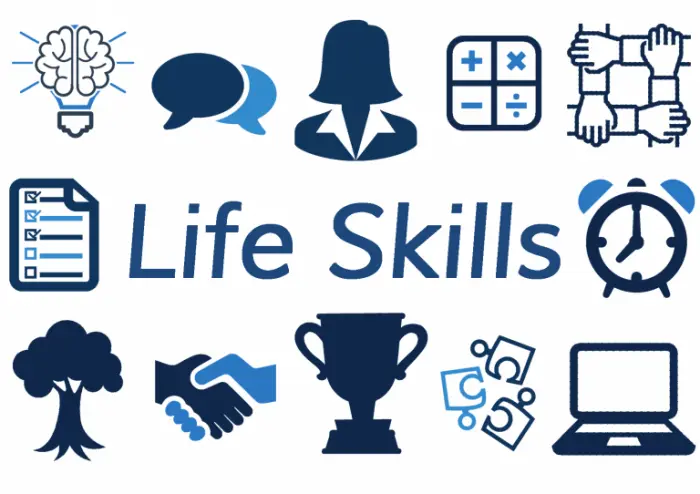Entering university marks a significant transition in life. It’s not just an academic journey; it’s a time to develop essential life skills that will benefit students both during their studies and beyond. Mastering these skills can enhance personal growth, improve academic performance, and prepare students for the challenges of the real world. This article explores some critical life skills every university student should cultivate.

About Life Skills
Life skills are abilities that help individuals deal effectively with the demands and challenges of everyday life. For university students, these skills are particularly important as they navigate a new environment, manage responsibilities, and prepare for future careers. Developing these skills not only aids in academic success but also promotes overall well-being and resilience.
Key Life Skills for University Students
1. Time Management
Effective time management is crucial for university students, who often juggle multiple responsibilities, including classes, assignments, part-time jobs, and social activities.
- Set Priorities: Identify urgent tasks and focus on completing them first.
- Create a Schedule: Use planners or digital tools to organize daily tasks and deadlines.
- Avoid Procrastination: Break large projects into manageable chunks and start early.
2. Communication Skills
Strong communication skills are essential for collaboration, networking, and effective interpersonal relationships.
- Verbal Communication: Practice articulating thoughts clearly in discussions and presentations.
- Written Communication: Develop strong writing skills for essays, reports, and emails.
- Active Listening: Engage with others by listening attentively and responding thoughtfully.
3. Financial Literacy
Understanding personal finance is vital for managing expenses and budgeting during university years.
- Budgeting: Create a monthly budget to track income and expenses.
- Saving: Set aside a portion of income for emergencies and future goals.
- Debt Management: Learn about loans, credit cards, and the importance of maintaining a good credit score.
4. Critical Thinking and Problem-Solving
These skills enable students to analyze situations, evaluate options, and make informed decisions.
- Question Assumptions: Challenge existing beliefs and explore different perspectives.
- Research: Utilize reliable sources to gather information and support arguments.
- Decision-Making: Weigh the pros and cons before reaching conclusions.
5. Adaptability
University life often involves unexpected changes, and being adaptable can ease the transition.
- Embrace Change: Accept that change is a part of life and view challenges as opportunities for growth.
- Stay Open-Minded: Be willing to consider new ideas and experiences.
- Learn from Mistakes: View setbacks as learning experiences and adjust strategies accordingly.
6. Networking and Relationship Building
Building a strong network can open doors to opportunities and support systems.
- Engage with Peers: Join clubs, organizations, and study groups to meet new people.
- Seek Mentors: Find faculty members or professionals who can provide guidance and support.
- Leverage Social Media: Use platforms like LinkedIn to connect with industry professionals and classmates.
7. Self-Care and Well-Being
Maintaining physical and mental health is essential for overall success.
- Physical Health: Regular exercise, a balanced diet, and sufficient sleep contribute to well-being.
- Mental Health: Practice stress management techniques, such as mindfulness and relaxation exercises.
- Seek Help: Don’t hesitate to seek support from campus resources, such as counseling services.
Conclusion
Mastering life skills is an essential part of the university experience. By focusing on time management, communication, financial literacy, critical thinking, adaptability, networking, and self-care, students can navigate their academic journey more effectively and prepare for future challenges. Investing time and effort in developing these skills will not only enhance academic success but also contribute to personal growth and fulfillment in life beyond university.